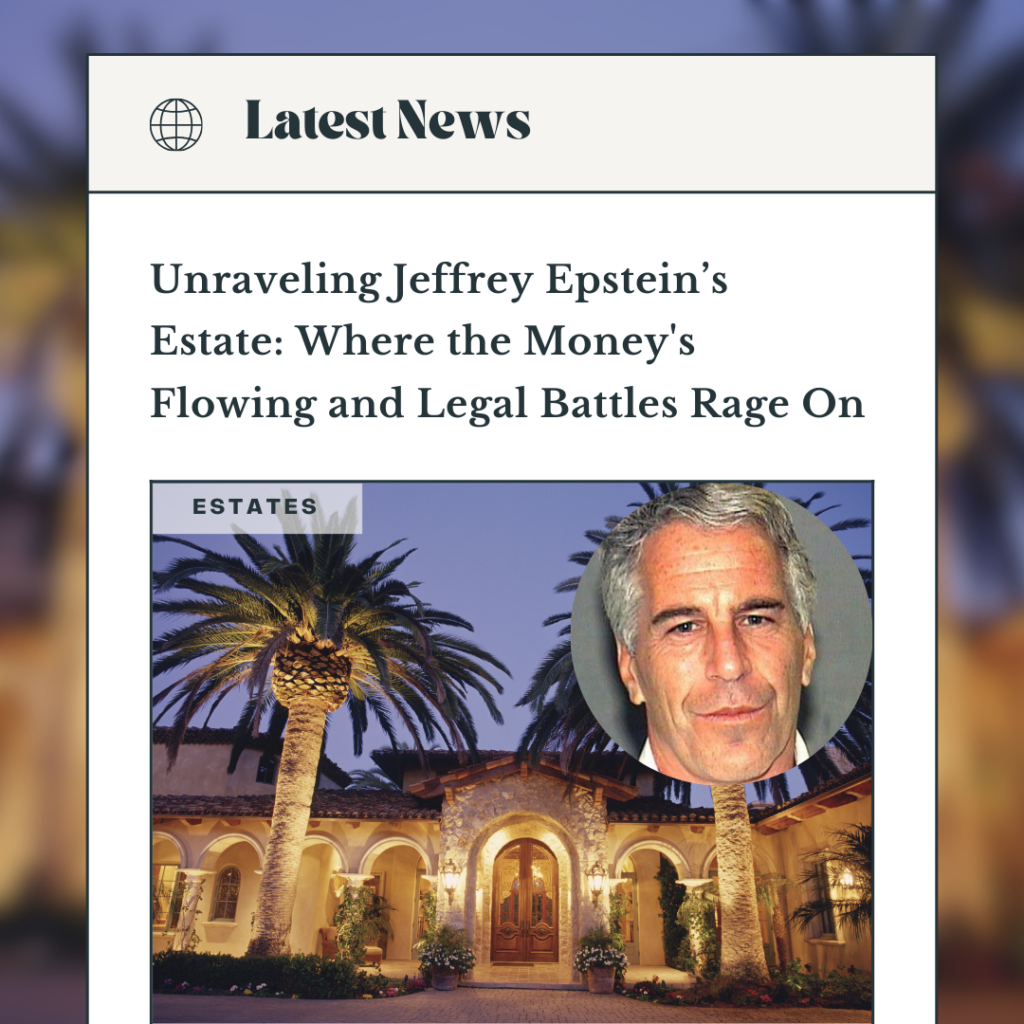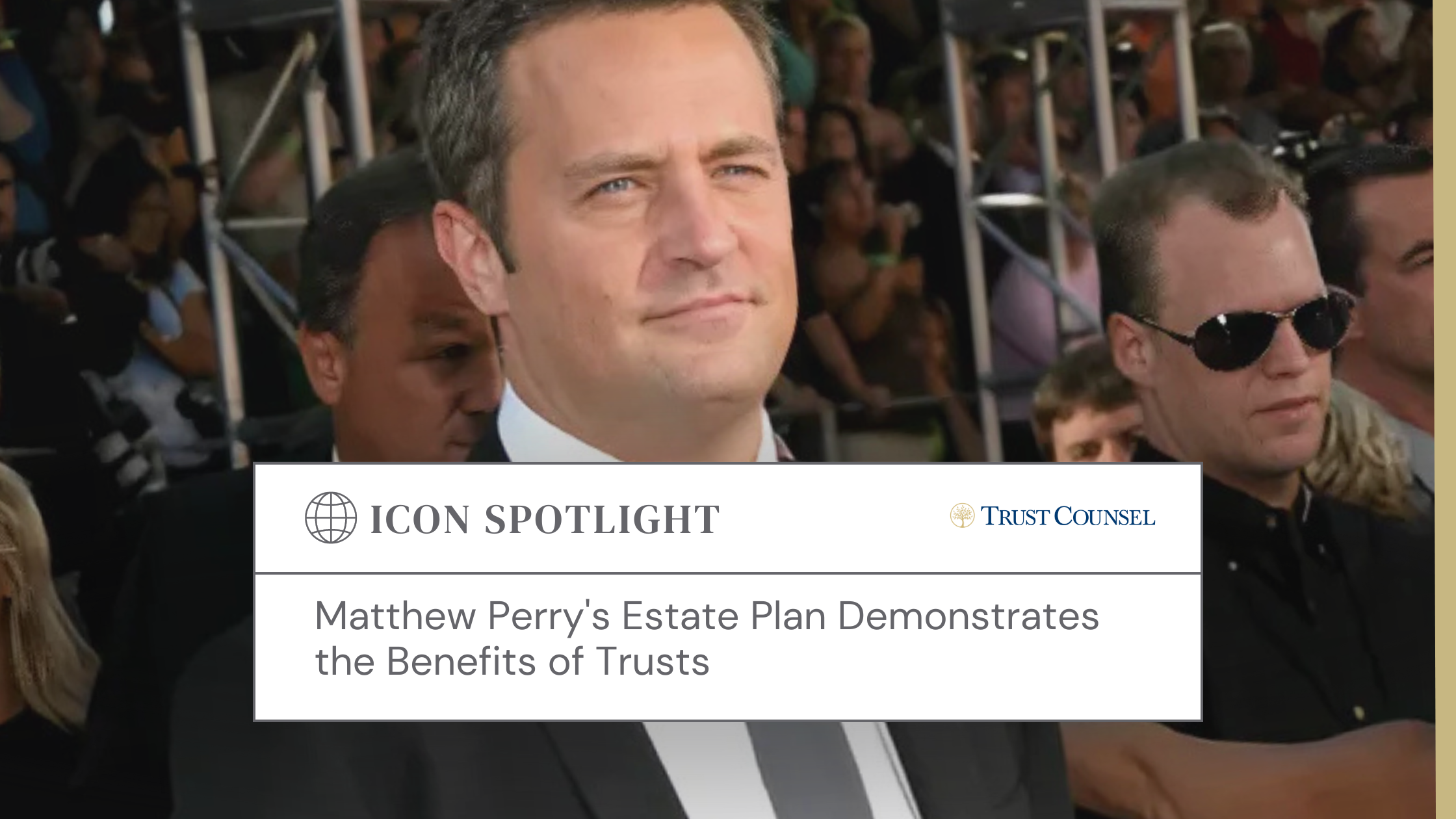Jeffrey Epstein’s signing of a Will two days before his suicide leaves many legal issues that I hypothesize will take more than a decade to decide. By creating a “pour-over Will” into a trust he created, we know that he has planned for privacy regarding who are his beneficiaries and how his assets (estimated at over $577 Million) are to be distributed. Check out a copy of his Will here.
But like any other estate probate proceeding, creditors of the Epstein estate must be paid off, and claims against the decedent resolved, before any of the remaining money can be distributed to beneficiaries or used to fund a trust. Interesting legal and tax questions remain:
- Was the Will properly signed and witnessed or otherwise met the legal requirements for it to be valid?
- Will the IRS prevail over the claims of the sexual abuse victims?
- Will federal prosecutors seek Epstein’s assets through a civil forfeiture proceeding?
Domicile matters. The laws of each jurisdiction are different. Often witnesses are required to be there when the person signs the Will. In Florida, the Will should be witnessed by two disinterested persons who should witness the signing not only in the presence of the testator (the one who signs the Will) but in the presence of each other. If this is done before a notary, then the Will is “self-proved” under Florida law (which means witnesses would not even be needed to go to court to prove up the Will). In this case, the Will was filed in the Virgin Islands which is where he had residence (although he also had residences in Florida, New Mexico, New York and France). As a result, initial proceedings should begin there. However, since the laws of what makes a Will valid vary by domicile, there could be a fight as to where proceedings should be held since jurisdiction may make a difference if the Will was even valid. Even if the Virgin Islands is determined to be the proper jurisdiction for probate, the other places where he owns real estate will have to approve the probate since the properties were not deeded into the trust. Some states also have state estate taxes.
Usually a federal tax lien has a higher priority than a tort claim – especially since the claims are unsecured until there is a judgment as mentioned above. However, there is a section in the Internal Revenue Code which mentions estate taxation claims are paid only after all claims have been settled. As a result, there will be legal maneuvering by the attorneys which will likely result in no party getting exactly what it wants. Epstein’s Will calls upon his executor to “pay all of my debts duly proven and allowed by my estate”. So, it may depend on how much the executor fights the claim of creditors – including the lawsuits of sex abuse victims. In any event, creditors will likely need to be paid prior to the property passing to the trust and its beneficiaries.
Although criminal forfeiture proceedings are more common which cannot be pursued in this case due to Epstein’s death, there is precedent for civil forfeiture proceedings as the Department of Justice brought a civil forfeiture proceeding against the CEO of Enron who died while facing fraud charges. Due to the size of the estate and the many victims, this very well could’ve happened which is why as of date, $121 million in settlements are to be paid out to more than 135 of Epstein’s sexual abuse victims, $9 million has already been paid out to the legal team responsible for establishing and overseeing the victims’ restitution fund, and another $21 million to law firms for their services and expenses.
Stay Informed: Navigating the Evolving Landscape of High-Profile Estate Cases.
Following the developments in Jeffrey Epstein’s estate is not merely a voyeuristic exercise but an opportunity to stay informed about the evolving legal landscape. High-profile cases offer valuable insights into the challenges and strategies involved in managing complex estates. By learning from these experiences, individuals can make informed decisions and enhance their own estate planning processes.





